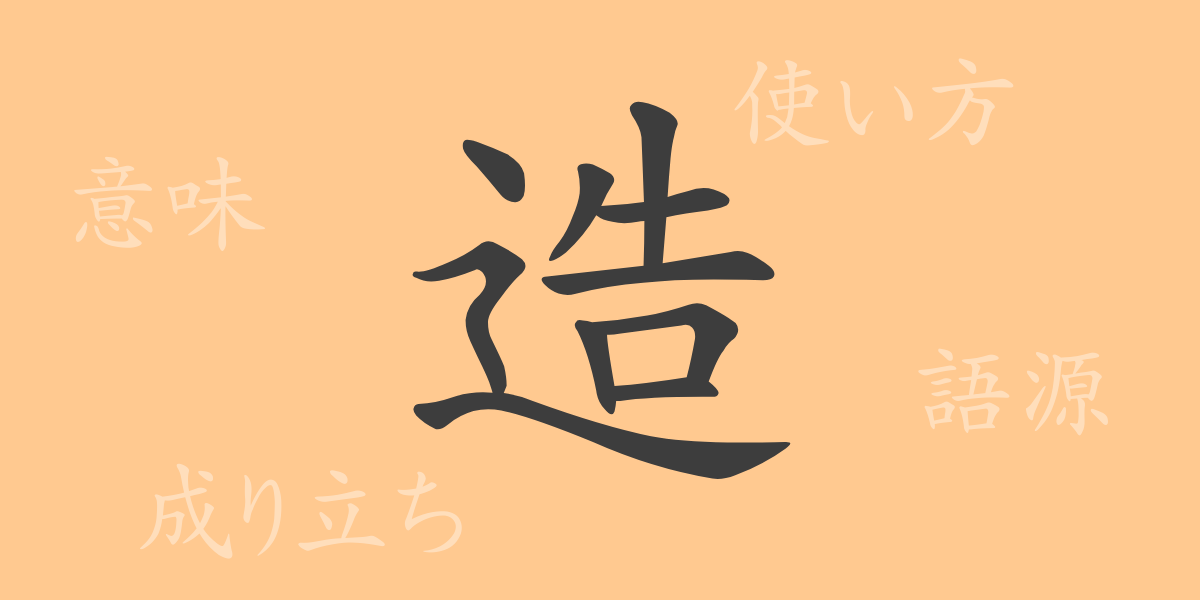In Japanese, there are numerous Kanji characters, each possessing its own unique history and meaning. One such character is ‘造’ (ぞう – zō), frequently encountered in our daily lives with a broad range of applications. This article delves into the full scope of ‘造’ as a common Kanji in Japan, starting from its etymology, exploring its meanings, usages, readings, idioms, and proverbs.
Origins of 造 (ぞう – Zō)
The Kanji ‘造’ originated in ancient China, combining the character ‘告’ meaning “to tell” and the radical ‘辵 (しんにょう – shinnyou)’ representing “walk.” Initially symbolizing prayers offered to gods, over time it evolved to denote “to make” or “to create.”
Meaning and Usage of 造 (ぞう – Zō)
Primarily, ‘造’ signifies “to make” or “to create,” encompassing nuances of “to produce,” “to construct,” and “to form.” It extends beyond physical creation to encompass abstract concepts and systems. It is also used in expressions like “交造する” (こうぞうする – kōzō suru) meaning “to build relationships.”
Readings, Stroke Count, and Radical of 造 (ぞう – Zō)
Let’s delve into the details of the Kanji ‘造’:
- Readings: On’yomi (音読み) ‘ゾウ’ (zō), Kun’yomi (訓読み) ‘つく.る’ ‘つく.り’ and others
- Stroke Count: ‘造’ consists of a total of 10 strokes
- Radical: The radical is ‘辵 (しんにょう – shinnyou)’
Phrases and Idioms Using 造 (ぞう – Zō) and Their Meanings
There are numerous idioms and phrases incorporating ‘造’, reflecting its rich meanings. Here are a few examples:
- 造詣 (ぞうけい – zōkei): Deep understanding or knowledge in a particular field.
- 造船 (ぞうせん – zōsen): The construction of ships.
- 造作もない (ぞうさもない – zōsa mo nai): Something easily done or effortless.
- 造反 (ぞうはん – zōhan): To revolt or rebel.
- 天造地設 (てんぞうちせつ – tenzōchisetsu): Nature’s creation being exceedingly wonderful.
Conclusion on 造 (ぞう – Zō)
The Kanji ‘造’ has deeply influenced Japanese life and culture throughout history. Its applications span from physical creation to establishing human relationships and societal systems. The idioms and proverbs featuring ‘造’ reflect its rich meanings, expanding the expressive breadth of the Japanese language. When encountering ‘造’ in daily life, reflecting on its historical background and meanings may deepen one’s understanding of language and culture.

























